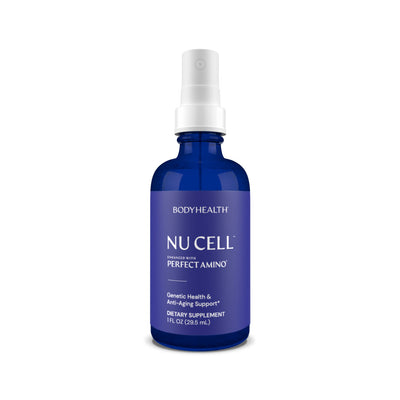Creatine: Energy, Brain Health, Stress & Longevity
September 21, 2025 4 min read

While most people have used creatine for muscle building and recovery, and still do, more and more information has come out about it’s affects on our energy levels, our brain and nerve health, our mental focus and clarity, our stress levels, sleep and recovery and even our overall longevity.
What makes creatine unique is its role in buffering and recycling cellular energy. It acts like an internal battery pack, keeping our energy output stable and responsive during moments of high demand — whether that’s physical exertion, intense mental concentration, or recovery.
But this system becomes even more important as we age, as our body’s natural production of creatine begins to decline.
When creatine levels run low, the consequences ripple throughout our body: low energy, cognitive fatigue or lack of focus, stress, slower recovery, and even increased risk of muscle and bone loss.
So, although our body can manufacture small amounts from amino acids, diet and supplementation are key to keeping levels high for long-term vitality.
Let's see how this works.
Creatine: Energy at the Cellular Level
At its core, creatine supports the most basic unit of life: adenosine triphosphate (ATP). Every action — from lifting your arm to forming a memory — requires ATP. But ATP is used up quickly, especially in high-demand tissues like the brain and muscles.
Creatine is stored inside our cells as phosphocreatine, a molecule that is used to regenerate ATP. This process rapidly restores energy, preventing fatigue and allowing our muscles and brain to keep performing.
Without adequate creatine, the ATP “energy bank” runs dry, and energy production falters.
This explains why creatine supplementation consistently boosts performance in both physical and mental tasks. It doesn’t create energy out of thin air — it makes our body’s energy system more efficient, more resilient, and quicker to recover.
Creatine and Recovery
Muscle recovery is one of creatine’s most recognized roles, but the process is deeper than just adding lean mass. When we exercise, small tears form in our muscle fibers.
These trigger repair and growth, but only if the body has enough energy and raw materials to rebuild. Creatine accelerates this process by activating satellite cells — the body’s muscle repair units — and by fueling protein synthesis.
Creatine also draws water into muscle cells, improving hydration, nutrient delivery, and protection against cramps. This cellular hydration effect supports not only athletes but also older adults who face slower healing and reduced muscle resilience.
Brain Energy, Cognition, and Mood
But while most creatine is stored in muscle tissue, a significant portion fuels the brain. The brain consumes an enormous amount of energy, and when ATP supplies dip, symptoms like brain fog, poor memory, and slower decision-making appear.
Studies show that creatine supplementation increases brain phosphocreatine stores and improves cognitive performance, especially in older adults. Improvements have been observed in memory, learning, attention, and the ability to follow through with decisions — the mental skills that allow us to plan, focus, and process information quickly.
Creatine also appears to buffer the brain against stress.
Mental strain, emotional upheaval, and physical conditions all increase energy demand in the brain. By stabilizing ATP levels, creatine helps reduce the fatigue and irritability that often come with mental stress.
Mood and resilience are also supported by creatine’s role in neurotransmitter function. By improving cellular energy, creatine helps the brain maintain stable signaling, which supports calmness, motivation, and emotional balance.
Creatine, Sleep, and Stress
Energy balance directly affects our sleep cycle. Poor sleep is often linked to low ATP reserves, which disrupt nighttime cellular repair and daytime alertness. Creatine can help improve sleep quality by buffering nighttime energy metabolism and reducing the sleep-disrupting effects of stress.
Stress, whether physical or psychological, consumes enormous amounts of energy. Chronic stress raises cortisol, a hormone that breaks down muscle, disrupts hormones, and contributes to fat gain. By providing a more stable energy reserve, creatine helps counter some of the downstream effects of prolonged stress and supports a calmer, more balanced physiology.
How To Take Creatine For Maximal Result
Creatine affects overall energy levels, mental focus, mood, sleep and recovery.
If we want to be able to work longer during the day, not get so tired out, keep focus and get better sleep, we can take creatine just for this.
Some people take half a serving daily for this and some people take a full serving. Either is fine. There is no need for creatine loading here and the effect will rise over the first 1-3 weeks.
And you will notice a difference.
You can get your PerfectAmino Creatine here. It's quite amazing the difference it can make.
And make sure to get your PerfectAmino and PerfectAmino Electrolytes as well to maximize creatine’s effect.
And if you really want to supercharge it, take Multi Complete with food during the day to ensure cells have all the nutrients they need to operate at their peak, and Body Calm magnesium at night to help with relaxation, mood, recovery and deeper sleep.
I hope this helps.
Articles by Health Topic
Your Path To Better Health Starts Here!
From in-depth articles on nutritional benefits to updates on new product launches, stay informed and inspired on your journey to optimal health.
*These statements have not been evaluated by the Food and Drug Administration. These products are not intended to diagnose, treat, cure, or prevent any disease.














